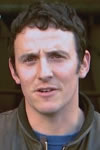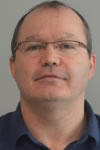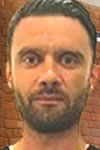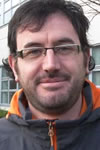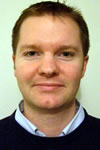
Ask me a question...
What were the main 'career decision' milestones in your life so far?

When I was in secondary school I began thinking about my future and decided I would like to work with children. During transition year work experience I visited several places including a primary school, a preschool and my local Speech and Language Therapy clinic. I also visited hospital laboratories as I was also interested in studying science at third level.
I realised that becoming a teacher did not really suit me but that I enjoyed watching the speech and language therapist working with children. I liked the idea of working one on one with children or in small groups. I had attended speech and drama since I was a young child and every year for exams we would learn a certain amount of the biology and theory behind speaking which I found interesting.
When completing my CAO form in 6th year I put the Clinical Speech and Language Studies course in Trinity College as my first choice. My other choices were science courses in a variety of different colleges. I achieved the points in my Leaving Cert. for the Clinical Speech and Language studies course so I accepted this straight away.
Who are the people who most influenced your career direction?

My mother initially suggested the career to me as she had known someone who attended speech and language therapy. The speech and language therapists that I met on transition year work experience also influenced my decision as they explained to me what the day to day job involved.
How did you go about getting your current job?

I applied for my job when I saw it advertised on the HSE careers in healthcare website and in a Sunday newspaper. I attended an interview where I was interviewed by two speech and language therapy managers and a representative form the HSE Human Resources department. The interview lasted approximately 30 minutes. I received a letter shortly afterwards to let me know that I had been successful in the interview.
Describe a typical day?

A typical day varies depending on the client groups that the therapist is working with. Speech and language therapists work with children and adults with speech difficulties and with language difficulties including understanding and using language. Possible client groups include clients with learning disability, physical difficulties such as cerebral palsy, genetic syndromes including down syndrome, delayed language development, stammering, stroke, head injury, autism, attention deficit disorder, cleft lip and palate, dyslexia, hearing impairment, voice difficulties, swallowing difficulties.
My typical day involves: I spend four mornings a week in a local primary school where there are two language units. These are small classes for children with specific language impairment. This means that they have average intellectual abilities but have severe speech or language difficulties. They receive their speech and language therapy during school hours several times every week.
In the afternoons and on Fridays I see children in two centres; the local health centre and an outpatient centre for children with physical and sensory difficulties. These children come to the clinic with their parents for assessment and therapy. The therapy I provide varies greatly depending on the client's individual needs. It may include: speech work, oro-motor exercises (these target the muscles involved in speech production), listening skills, play skills, following instructions, grammar, sentence production, conversational skills, and understanding of concepts.
This timetable can change as I sometimes visit schools to liaise with teachers regarding a child's speech and language programme. I also attend meetings to discuss and develop our service and I sometimes attend courses to learn new assessment and therapy skills. Working from a variety of locations every week requires organisation and forward planning. I have to plan ahead what I will need in each location and the children I will be working with.
What are the main tasks and responsibilities?

- To assess, plan and carry out intervention programmes
- To collaborate with clients, family, carers and other staff in goal setting and treatment
- To maintain up-to-date and accurate case notes in line with professional standards and policies
- To manage own time, planning and prioritising tasks appropriately
What are the main challenges?

Some of the main challenges include:
- When clients present with unusual and complicated difficulties. This requires resourceful, flexible thinking and the ability to research new therapy ideas.
- Long waiting lists.
- Balancing seeing clients with managing other aspects of work including attending meetings, keeping paperwork up to date, attending courses etc.
- Keeping up to date with new developments in therapy and assessment and expanding my skill base.
What do you like most?

Job satisfaction is the best thing for me. It is very rewarding to see a client progress and do well based on your work with them. Also the working hours and annual leave allows me to enjoy other aspects of life including hobbies and traveling.
There is also a great deal of variety in this career. Every client we meet is different and a day's work is rarely dull. I also get the opportunity to liaise with and meet a variety of other professionals such as occupational therapists, physiotherapists, psychologists, teachers. I'm also lucky in that my work colleagues have also become friends.
Is there anything that isn't great?

- Waiting lists and time pressures can create stress at times
- The behaviour of clients can be challenging at times
- Dealing with children and adults with difficulties can be emotionally upsetting. However the knowledge that as a profession we can help them is uplifting in these situations
- Occasionally we come across difficult or upsetting situations that cannot be changed by our profession alone. This can be difficult.
What particular skills do you bring to your workplace?

- Empathy is important when dealing with clients in difficult situations
- A caring nature is vital. Speech and language therapists must have a desire to help people
- Responsible: this is vital for maintaining confidentiality and acting in a professional way
- Interpersonal skills eg. being a 'people person'
- Organised
- Team player
- Efficient
- Resourceful
- Versatile and flexible thinker
What subjects did you take in school and how have these influenced your career path?

For my Leaving Cert I studied Biology, Chemistry, Economics and French along with the other core subjects. Biology and English had the most relevance to my future studies.
What is your education to date?

I studied for my Leaving Cert in my local secondary school. After this I began the Clinical Speech and Language Studies Course in TCD. This is a four year degree course.
There are now similar courses available in NUI Galway and University College Cork. There is also a postgraduate course in the University of Limerick and a degree course in University of Ulster Jordanstown.
What aspects of your education have proven most important for your job?

My undergraduate degree course in TCD was definitely the most important education for my job. It was a challenging and intensive course. First year is spent studying a range of different subjects including linguistics, phonetics, language acquisition, psychology, physiology.
Second year is based around learning how to assess the speech and language skills of a wide range of client groups. Third year is based around learning the principles and techniques for providing therapy.
Throughout these years students have a wide variety of clinical placements. Some are once a week while attending lectures. Others are full time placements ranging from 4 to 6 weeks.
Several of these placements involved living away from home for the period of the placement. Fourth year is made up mostly with clinical placements, researching and producing a research project and other subjects such as neuropsychology and additional topics. Grades are based on written exams, assignments, essays, practical clinical exams and the research project. I found that the clinical placements were the most beneficial part of the course as I got the chance to put new skills and knowledge into practice.
What have been the most rewarding events in your career so far?

The rewarding events in this job happen on a daily basis when you see that the therapy you provided has benefited a client in some way. When you can discharge a client because their speech and language skills are age appropriate a sense of accomplishment is achieved. It is also rewarding when a good rapport and relationship is established between the therapist, the clients and their carers.
What personal qualities do you have that helps you in your career?

- Patient
- Warm
- Caring
- Empathetic
- Good listening skills
- Organised
- Flexible thinker
- Approachable
- Good communication skills
What is your dream job?

Drama and singing have been hobbies of mine since I was a child so in a perfect world I would love to be a successful actress or a singer.
Does your job allow you to have a lifestyle you are happy with?

This job allows a wide range of leisure activities as my set working hours are 9-5 Monday to Friday, so this allows hobbies and leisure activities in the evenings and at weekends. The job provides a good salary which increases each year with increments. It is also possible to get a permanent secure job. After working for a set number of years there is the possibility of progressing from basic grade to senior therapist if a job becomes available. There is also the possibility of becoming a Speech and Language Therapy manager and taking on a management role. Another benefit is 27 days annual leave per year.
What advice would you give to someone considering this job?

Get some experience working with both children and the elderly and feel comfortable working with both. Throughout college you will take part in clinical placements where you will be required to work with various age groups.
Work hard in school and achieve good Leaving Cert. results in order to get the necessary points for entry into the course.
Research the career thoroughly and arrange to speak with a speech and language therapist to discuss the job further.
Think about the personal characteristics mentioned below that are important for the job and think about whether you possess these characteristics
What are the three most important personal characteristics required for the job?

It's difficult to narrow it down to three but here goes:
- Being open minded and non-judgemental
- Having a desire to help people
- Being a flexible learner and thinker
Have you undertaken, or do you plan to undertake any further training as part of your job?

Continuing professional development is an important part of my job. This includes attending courses that are organised to train new assessment and therapy skills. I have had the chance to attend several courses over the past year and a half since I began working. It also involves keeping up to date with new research and evidence for the therapy techniques that we use and also undertaking research.
On a day to day basis all the therapists share new ideas and information with each other and it is very useful to discuss clients with more experienced therapists to get extra ideas. It is also possible to further your formal education by undertaking a masters or a higher level diploma course. There are several of these available in the area of speech and language therapy.
What kinds of work experience would provide a good background for this position?

Arrange to volunteer in various services such as community summer camps, preschools, nursing homes, schools , special schools and care units etc. Arrange to meet with a speech and language therapist to discuss the job further and ask any questions that you may have. Generally speech and language therapists cannot allow secondary school students to observe them working directly with clients due to confidentiality issues.
- Career Development?
- Current Job?
- Education and
Training?
- Personal Qualities?
- Advice for Others?

